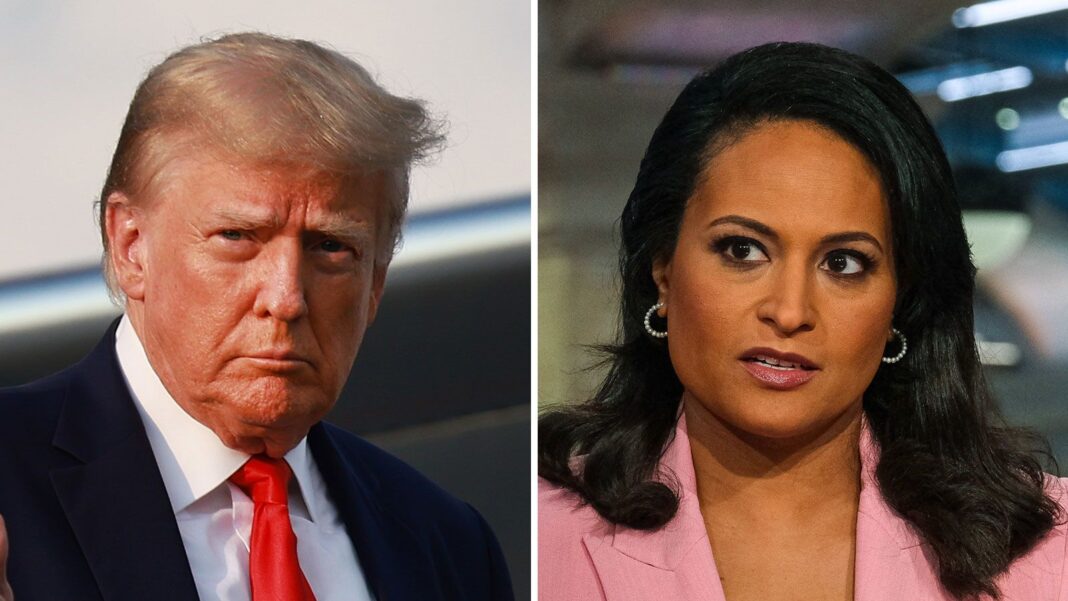|
Getting your Trinity Audio player ready...
|
Donald Trump on Hostage Release Deal: “It Better Hold” – But Is Israel’s Security at Risk?
Edited by: Fern Sidman
President-elect Donald Trump, in a Saturday interview with NBC News, voiced both hope and stern warnings about the recently approved Israeli ceasefire and hostage release deal with Hamas. According to a report at Israel National News (INN), Trump emphasized the critical need for the deal to succeed and reiterated his unrelenting pressure on all parties to ensure the hostages are freed. His warnings have sparked debate, not only about the short-term outcomes but also the long-term implications for Israel’s security.
Trump’s remarks reflected his characteristic bluntness. When asked about the likelihood of the hostages being freed, he responded, “Well, we’re going to see very soon, and it better hold.” As INN reported, this was not just a comment on the deal’s fragility but a direct signal to Hamas and other parties involved that failure would carry consequences. Trump’s rhetoric has been unyielding, consistently framing the matter as a top priority for his administration even before he assumes office.
In a wide-ranging phone interview with NBC News’ Kristen Welker, President-elect Trump talked about his decision to move inauguration indoors and what he’ll tackle his first week in office.
Here’s a breakdown:
— Zulqarnain Riaz (@bangish001) January 19, 2025
As the INN report highlighted, Trump has repeatedly warned that failure to release the hostages would result in “all hell to pay.” These remarks began in early December 2024, when Trump made it clear that his administration would take severe measures if the hostages were not freed by the time of his January 20 inauguration. On Thursday, just days before the deal was finalized in Qatar, Trump reiterated the urgency of resolving the issue during a podcast with Dan Bongino. “We changed the course of it, and we changed it fast,” Trump declared. “Frankly, it better be done before I take the oath of office.”
INN also reported that Trump also revealed the U.S. had formalized agreements during negotiations but underscored his expectation for immediate results. “We shook hands, and we signed certain documents, but it better be done,” he insisted, signaling his willingness to escalate matters if the deal faltered.
While the deal has brought hope for the release of hostages, critics argue it could have disastrous long-term consequences for Israel’s security. According to INN, this is not the first time Israel has released convicted terrorists in exchange for hostages, and the precedent has proven costly. One of the most infamous examples is Yahya Sinwar, who was released in 2011 as part of the deal to free IDF Corporal Gilad Shalit. Sinwar, once a convicted terrorist, assumed the role of leader of Hamas in Gaza and was the chief architect of the October 7, 2023, massacre that shocked the world. Sinwar has since been neutralized by Israeli forces.
The INN report emphasized that the parallels between the current deal and the Shalit exchange raise serious concerns about a potential repeat of such tragedies. Sinwar’s role in orchestrating the October 7 attack, which claimed the lives of over 1,200 Israelis and saw hundreds taken hostage, is a stark reminder of the risks involved in releasing dangerous individuals. Critics of the deal argue that trading convicted terrorists for hostages may save lives in the short term but could embolden future acts of terror, inevitably leading to another catastrophic event.
In his interview, Trump outlined how his administration plans to ensure the ceasefire holds. “Respect. The United States has to get respected again, and it has to get respected fast,” he told NBC News, as was reported by INN. Trump suggested that respect for American strength and leadership would be the cornerstone of maintaining peace. “If they respect us, it will hold. If they don’t respect us, all hell will break out,” he warned.
While Trump’s focus on respect and decisive leadership resonates with many, INN reported that skepticism remains about whether these measures can counterbalance the risks posed by releasing individuals with violent histories.
The hostage release deal has sparked emotional and political debate in Israel and abroad. Families of terror victims have expressed outrage, fearing the release of convicted terrorists will lead to further violence. According to INN, the Israeli Supreme Court rejected petitions opposing the deal early Sunday morning, allowing it to proceed. While some view the deal as a necessary evil to save lives, others see it as a dangerous precedent that undermines justice and endangers Israel’s future.
As Israel prepares for the deal’s implementation, which begins with a ceasefire and the release of the first three hostages, the specter of another October 7 looms large.
In this fraught environment, Trump’s involvement and his administration’s commitment to ensuring the deal’s success will play a pivotal role. However, as the INN report pointed out, the echoes of past deals serve as a sobering reminder of the potential consequences, leaving many to wonder if Israel is trading short-term relief for long-term peril.





 :
: 